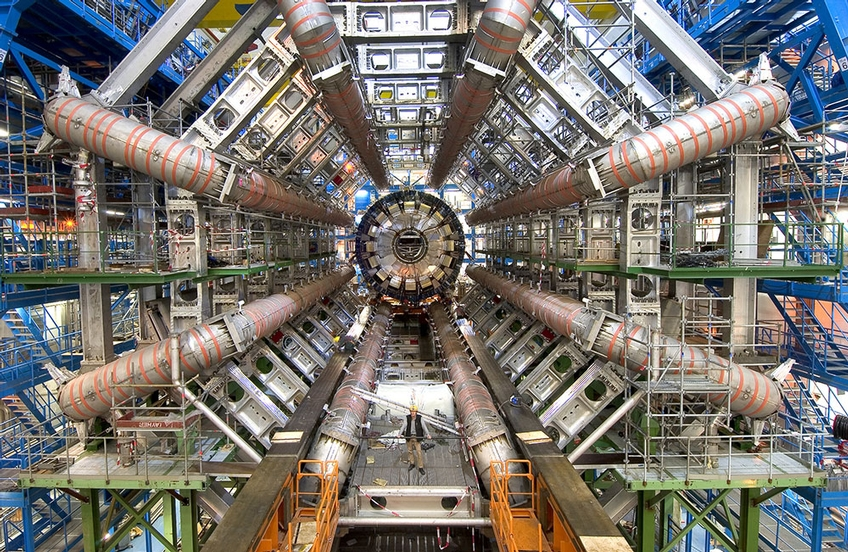



Topics | Textbook | Class Times | Grading | Lecture Notes

This course is a survey of the techniques of modern particle physics experiments; accelerators, low background laboratories and the detectors deployed there to study fundamental particles. The emphasis is on how these technologies allow us to probe new areas of particle physics. Several modern particle physics experiments will be used as examples to highlight these techniques. The basics of charged particle accelerators will be covered along with the limitations on energy and luminosity both from the point of view of accelerator technology, and the experiments. The design of low-background, underground laboratories will also be discussed and how they make it possible to study rare particle physics phenomena and search for possible dark matter candidates. The physics and technology of solid state, gas and liquid ionisation and scintillation detectors are covered, along with the practical application to identify long lived particles at accelerators or rare processes in underground labs. The physics of calorimeters and bolometers will be discussed along with the practical realization of these devices in present experiments, such as SuperCDMS and ATLAS. Innovative devices such as Cerenkov detectors will also be discussed along with their application in LHCb and the SNO+ experiment.


| Day | Time | Room |
|---|---|---|
| Monday | 13:10-14:00 | MP912 |
| Thursday | 13:10-14:00 | MP912 |

| Date | Fraction of Grade | |
|---|---|---|
| Problem Sets | (See Below) | 60% |
| In-Class Presentation | Week of April 1 | 20% |
| Term Paper | Due April 5, 2024 | 20% |

What follows is the outline for the course. We will post notes a few days before each class meeting. You should read through them and be prepared to discuss them when we meet. We will not be giving traditional lectures in this course. Instead we will discuss the notes and try to expand/explain areas where there may have been confusion. If you haven't read the notes before coming these discussions will be much shorter and less useful.
Similarly problem sets will be posted on the day they are assigned. You will be expected to work through them and submit solutions by the 'due date'. We can, of course, discuss generalities around the problems assigned in class, but will not be working through the solutions with you in class.

Additional policies and procedures, as they relate to this course can be found here .
Web Site: on www.physics.utoronto.ca/~phy2405
This page maintained by william@physics.utoronto.ca and zqhong@physics.utoronto.ca
Last Updated: March 27, 2024